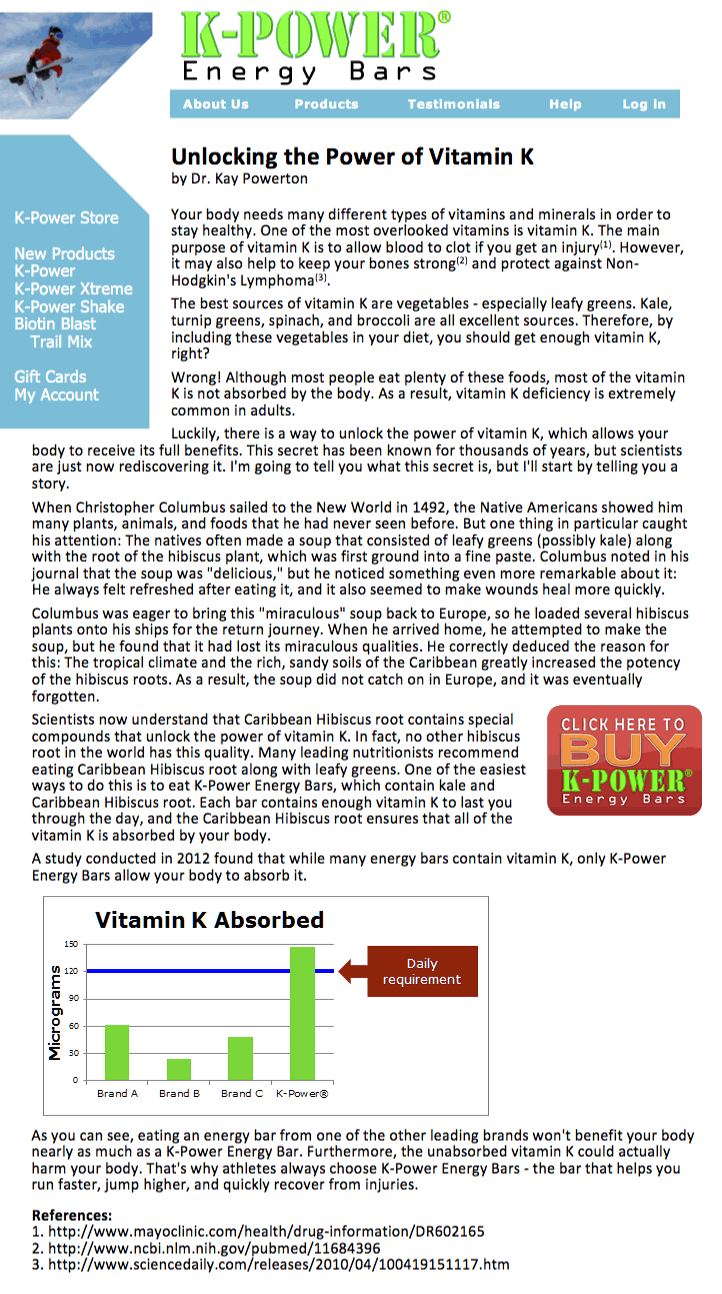Digital Media Literacy -
Practice Evaluating a Webpage

Digital Media Literacy
Practice Evaluating a Webpage


/en/digital-media-literacy/judging-online-information/content/
Many pages may seem reliable at first, but as you evaluate them you may find that they are less than credible sources. By looking for clues on different parts of a webpage, you can decide whether it's reliable. As you practice this skill, you'll be able to evaluate webpages more quickly and accurately.
Whenever you evaluate a website, ask yourself a few key questions:
To put our skills to the test, let's take a look at this article to evaluate its credibility:

There is clearly a problem with this article, as it seems that the author has fabricated information to get people to buy K-Power Energy Bars. While it's possible that these energy bars are a quality product, you probably shouldn't believe anything the article says about vitamin K or Caribbean Hibiscus root. Although some of the article is true and cites credible sources, it would be best to go directly to those sources to get more trustworthy information. Overall, this article is probably not objective or reliable.
Remember, just because a website looks scientific or historical doesn't mean it's credible. Unless the information can be verified, it's possible that it's all made up, so take your time whenever you evaluate online information.
Go to the following two sites: Man on the Moon - A rethink and How Do We Know The Moon Landing Really Happened?
/en/digital-media-literacy/how-to-read-a-webpage/content/